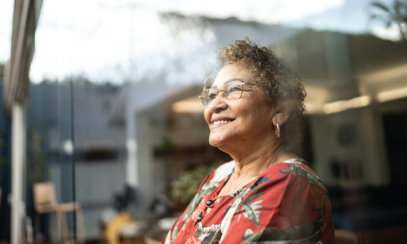
Caring for Another?
What’s in Your Toolkit?
What’s in Your Toolkit?
‘Wherever God has put you, that is your vocation. It is not what we do but how much love we put into it.’
– St. Teresa of Calcutta
Caregiving takes time. Many challenges come with a caregiving role, but it can also be filled with endless rewards. Caregivers often juggle many other responsibilities, and so self-care gets left behind. Consider weaving in self-care moments throughout the day. Start by developing a self-care toolkit with essential elements that meet a holistic approach. Whether it’s a new role caring for sick children or long-term caregiving, taking care of ourselves is critical. Here are a few tools to assist you:
‘Wherever God has put you, that is your vocation. It is not what we do but how much love we put into it.’
– St. Teresa of Calcutta
Caregiving takes time. Many challenges come with a caregiving role, but it can also be filled with endless rewards. Caregivers often juggle many other responsibilities, and so self-care gets left behind. Consider weaving in self-care moments throughout the day. Start by developing a self-care toolkit with essential elements that meet a holistic approach. Whether it’s a new role caring for sick children or long-term caregiving, taking care of ourselves is critical. Here are a few tools to assist you:
Daily prayer.
First and foremost, pray. Talk with God daily and ask for patience, grace, peace and strength. For those who like to write, keeping a “spiritual journal” can be a method of prayer. Meditate in the form of praying the Rosary using a phone app, preferably while taking a walk. Add post-it notes with Scripture in your environment to remind you to pray.
Social support.
Ask for help. I learned early on in shared caregiving for elderly parents not to be afraid to ask for help from others. This help may be in the form of a visit from a friend while you run errands or take a walk in nature to clear your thoughts. Also, surround yourself with positive peer influences who have similar values.
Body awareness.
Tune in to the holistic needs of your body. Exercise can be simple (a 10-minute walk is better than nothing); a healthy diet provides energy (so eat small amounts often); and adequate sleep is important. You will feel renewed, and this will be reflected in your state of mind.
Positive mindset.
Consider this role your new vocation and value it as being entrusted by God. Instead of care “giving,” why not consider being care partners with the recipient of care? If we think of care partnering as a learning experience, we will engage differently with the person in need. Instead of harboring any negative thoughts, consider asking yourself, “What is the care partner teaching me?” or “What is God asking of me?”
Our self-care toolkit can remind us of our new vocation, one where we use a holistic approach to stay well and finish strong. It is much easier to pour all of our love into it if we are refreshed and renewed by caring for ourselves.
Laurel Hilliker holds a doctorate in sociology with a research specialization in grief studies along with a certification in thanatology. She teaches at the University of Michigan-Flint and is the owner of Bearing Loss: Grief Education and Consulting, LLC.



